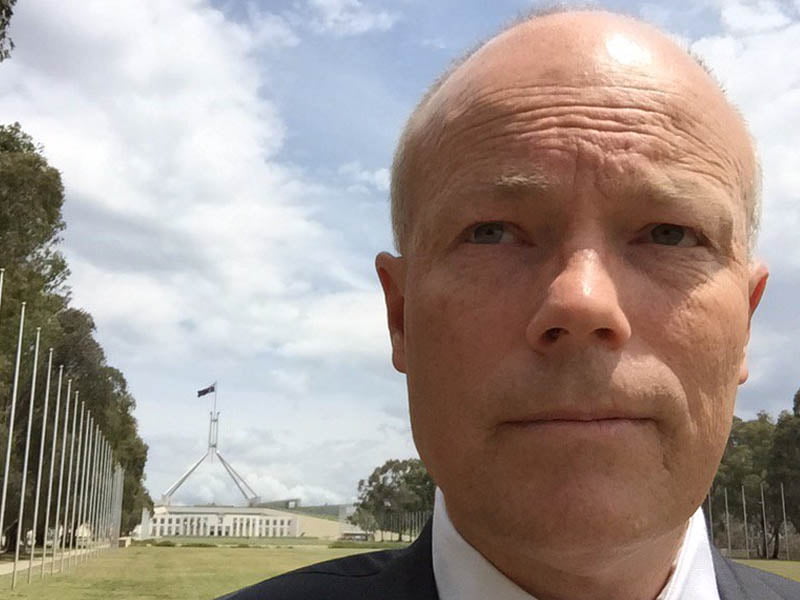The Turnbull government’s slow off the blocks Joint Cyber Security Centre program will hoist its flag in Hobart and Darwin, as Federal cyber czar Alastair MacGibbon promised to ‘do better’ at making the cyber information sharing program work.
Separately, workplace cyber awareness will score a big boost from a plan to put a cyber component into every TAFE trade course curriculum.
Mr MacGibbon announced the creation of two new junior JCSCs at the InnovationAus.com’s Cyber Leaders event in Sydney.

The $47 million JCSC program is supposed to be the collaborative glue that fosters linkages for cyber information sharing between government, academia and business.
The program is supposed to be especially helpful to small and medium business which is too vast to have the intimate, informal, old school tie network of board members that the top end of town uses for cyber relations.
The JCSCs grew out of the Turnbull government’s 2016 cyber security strategy plan and have taken a while to roll out. The first one opened in Brisbane in February 2017, then came Melbourne last October, Perth in December, Sydney in March 2018 and the last one in Adelaide is expected to open later this year.
The program still requires a joint regulatory and procedural framework to be nutted out by the participants.
The foundation money for the JCSC program has already been allocated to the larger state centres so the junior Hobart and Darwin JCSCs will co-locate with AustCyber, which is opening innovation nodes in the cities.
“We are going to work with our friends in AustCyber and others to open up centres in Darwin and Hobart to get more of a national footprint,” said Mr MacGibbon.
The two cities will pilot an idea where some JCSC staff collocate and collaborate with innovation nodes in the larger state capitals, said AustCyber chief executive Michelle Price, adding JCSC staffing in Hobart and Darwin would be “one or two people.”
Now the bricks and mortar for the JCSC program has been sorted out, the next step is to get the legal and operational procedures in place in how people can collaborate.
“For all of those companies that take a management risk by putting their people into those locations, it’s about making sure everybody knows what the baseline is so they can be comfortable,” Ms Price said.
“There has to be a return on investment there and it has to be pretty quick.”
Mr MacGibbon promised to speed up the JCSC program and put it to work.
“I am not going to stand before you to say we’ve got it right because I’m conscious people are going to tell me where we got it wrong,” he said.
“What I will say is that we are hell bent on making [the centres] work. We just can’t do what we have done in the past.
“To do what we have done in the past and not get traction and scale and not change behaviour is completely unacceptable in 2018. And I can say that with the full support – in fact pressure – from my minister, Angus Taylor.”
Steve Ingram, ASEANZ Cyber Markets Leader for PwC said the JCSC’s had been a “good step” to building a deterrent network for cybercrime, but hadn’t yet achieved the goal.
“They have created a physical presence in most capital cities, but they haven’t created this critical information sharing ability,” Mr Ingram said.
On the cyber skills front, TAFE students seeking trade qualifications will be taught cyber skills in a move that AustCyber’s Ms Price believes will fundamentally change the workforce.
“We just had agreement that AustCyber is going to be coordinating the national consultation on making sure that at every trade level, every single TAFE qualification in this country will include a subject on cyber security
“What that’s going to provide is a pathway up into a whole range of different higher education options – not just university.
Ms Price believes seeding cyber awareness into trade qualifications will move the needle in how cyber skills are applied in the workplace.
“We have predicted we will see a shift in the way Australians conceive of and apply cyber skills in the workforce within four years,” she said.
Do you know more? Contact James Riley via Email.

